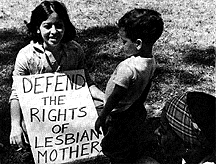
|
Crosslistings: WMST 231 |

|
Crosslistings: WMST 231 |
As one of the most basic units of organization in any society, the family is a crucial and fascinating area for sociological analysis. Like the hub of a wheel, the family touches and connects every other part of social
life. Religion, class, economic and political systems, immigration, ideology, race, gender- none of these can be fully understood without also understanding how it influences and is influenced by the institution of the
family. The family is a primary and profound agent of individual socialization. It is where biological facts meet social ones- and where their respective borders are endlessly disputed. From its central and
fundamental
position in social life, the family is a powerful force for or against social change. It is thus no small wonder that it is also routinely an area of contentious social debate.
In this course we will explore how the
personal
world of families relates to broad social phenomena (such as religion, stratification, and government). We will consider as well how broad social phenomena shape seemingly personal family experiences (such as having
sex,
falling in love, or having a child). Finally, we will apply sociological analysis to some contemporary family issues and commonly held assumptions about the family. The majority of the course will focus on families in
the
United States, but we will frequently broaden the analysis with examples from other cultures.
COURSE FORMAT: Lecture/Discussion
Level: UGRD Credit: 1 Gen Ed Area Dept: SBS SOC Grading Mode: Graded
Prerequisites: SOC151 OR SOC152
Last Updated on MAR-19-2004
Copyright Wesleyan University, Middletown, Connecticut, 06459